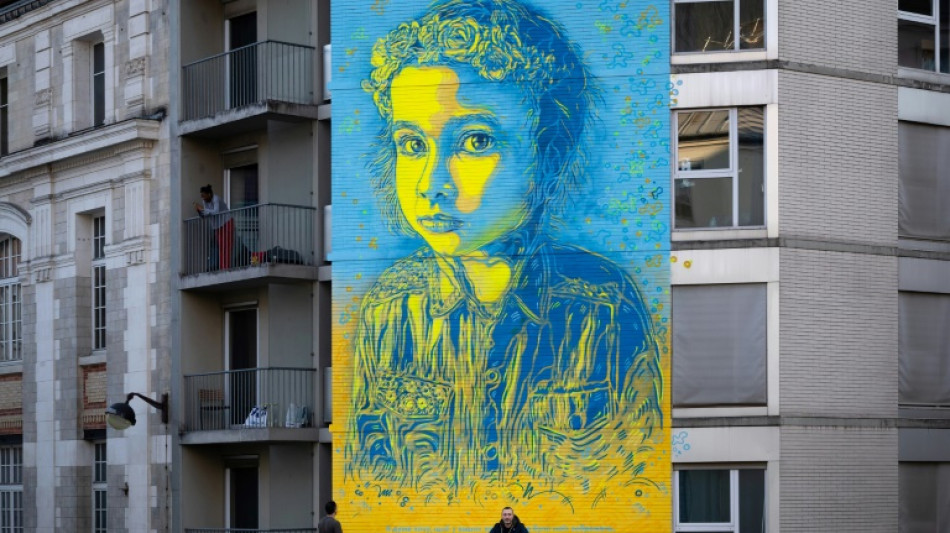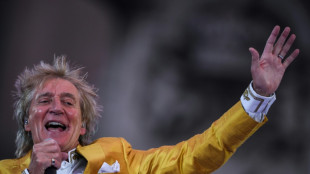

Paris graffiti legend C215 on his Ukraine mural
The huge blue-and-yellow mural covering the side of a Paris apartment block is a reminder, says Paris-based artist C215, of the human cost of the war in Ukraine.
But it is also testament to the talents of a man whose graffiti skills helped him overcome a traumatic youth to become one of France's leading street artists -- a one-time Banksy collaborator who has tagged walls all over the world.
Real name Christian Guemy, the 49-year-old unveiled the huge new portrait of the Ukrainian girl last week in the 13th arrondissement of Paris.
It carries a quote from Ukrainian President Volodymyr Zelensky, who said to his staff when he was elected in 2019: "I really don't want my photos in your offices, because I am neither a god nor an icon, but rather a servant of the nation. Instead, hang pictures of your children and look at them whenever you want to make a decision."
"It's a universal message of support," Guemy told AFP at his studio. "It challenges us to think about the ongoing humanitarian drama in Ukraine and the responsibility of politicians to do something. I can't ignore the incursions of big politics into people's daily lives."
- Heroes -
Guemy's pictures are often of regular people, such as the child victims of conflicts from Syria to Kosovo to Rwanda.
He also depicts historical figures -- heroes of French republicanism such as resistance fighters or the Charlie Hebdo journalists murdered in 2015.
In his studio, stencils of Nelson Mandela and Jean-Michel Basquiat are propped up against the walls.
"Perhaps some are too simplistic for the elites, but they are clear enough to reach a very large audience, including in working class areas," he said.
"I want my works to be more important than me, to unite people in a society where everything is divisive."
Born in 1973 in Bondy, a tough suburb on the outskirts of Paris, Guemy was amused by drawing from a young age without expecting anything more from it.
"It was a place totally disconnected from culture," he said. "I grew up in the world of the night: violence, drugs, alcohol."
His mother had him when she was 13 and his grandparents raised him as if they were his parents and she was his sister.
Five years later, his mother killed herself -- a tragedy he says he has now "overcome".
- 'Too tragic' -
Bright and multi-lingual, he landed a job in luxury furniture exports, but after a painful break-up, gave up his job to start doing graffiti in the streets, with no inkling of the success it would bring.
"I started stencilling my daughter's portrait around her house to signal my presence and channel my depression," he said.
He developed a simple method -- cutting out faces in card without any prior drawing then spray-painting them.
That led to portraits of other people -- "generally people who have done a little more than life expected of them".
Soon after he began, he was spotted by members of Banksy's team and ended up collaborating with the British artist and appearing in his 2008 documentary "Exit Through the Gift Shop".
He felt "too French, too tragic" to continue their partnership, but it had opened doors and he found himself travelling the world, putting together exhibitions, publishing books and helping to design video games.
The thing that he is actually proud of, however, is his work in prisons (24 and counting).
"That's the work that I want people to remember. The older I get, the more I realise that caring for the weakest, the most fragile, is what we should constantly be focused on."
L.Amato--IM



